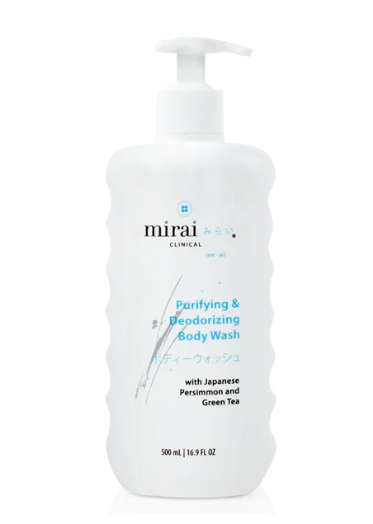As we age, our bodies undergo many changes. Our skin, once resilient, becomes thinner and more delicate. This delicate skin is more susceptible to dryness, irritation, and itching. Harsh soaps, with their stripping properties and abrasive ingredients, can exacerbate these problems. This is especially true for those with sensitive skin, regardless of age.
However, maintaining good hygiene remains essential for overall health and well-being. So, how do we ensure a clean and comfortable bath for ourselves or a loved one with sensitive skin? The answer lies in selecting the right soap and using gentle application techniques. This article will be your guide to navigating the world of soaps for elderly and sensitive skin.
Understanding Sensitive Skin in Seniors
Sensitive skin is a common concern, affecting people of all ages. However, it can become a more significant issue for seniors due to several factors:
- Decreased Sebum Production: Sebum is a natural oil produced by the sebaceous glands. It helps keep the skin hydrated and protected. As we age, sebum production decreases, leaving the skin drier and more vulnerable to irritation.
- Thinner Epidermis: The outermost layer of the skin, the epidermis, thins with age. This reduced barrier function makes the skin more susceptible to environmental irritants.
- Underlying Conditions: Certain medical conditions, like eczema and rosacea, can become more pronounced with age, further increasing skin sensitivity.
These factors combined can lead to a variety of symptoms in sensitive skin, including:
- Dryness
- Itching
- Redness
- Burning
- Stinging
- Rashes
Choosing the Right Soap: Gentle Ingredients for Gentle Cleansing
When selecting a soap for elderly or sensitive skin, the key is to prioritize gentle, non-irritating ingredients. Here are some key things to look for:
- Fragrance-Free: Artificial fragrances are common culprits behind skin irritation. Opt for fragrance-free soaps to minimize the risk of a reaction.
- Dye-Free: Similar to fragrances, dyes can also irritate sensitive skin. Stick with soaps that are naturally colored or completely free of dyes.
- Hypoallergenic: Hypoallergenic soaps are formulated to minimize the risk of allergic reactions. Look for this label on the product for added peace of mind.
- Moisturizing Ingredients: Sensitive skin craves moisture. Look for soaps containing ingredients like shea butter, oatmeal, ceramides, or hyaluronic acid. These ingredients help replenish the skin's natural moisture barrier.
- Syndet vs. Soap: Traditional soaps are made with lye, which can be drying. Syndets are synthetic detergents that offer a gentler cleansing action. While both can be suitable for sensitive skin, syndets are generally considered a safer choice, especially for those with very sensitive skin.
Here are some examples of gentle soaps that meet these criteria:
- Cetaphil Gentle Skin Cleanser
- Aveeno Calm + Restore Nourishing Oat Bath Treatment
- Vanicream Free & Clear Gentle Body Wash
- Eucerin Advanced Cleansing Body Wash
- Dove Sensitive Skin Beauty Bar (Though technically a bar soap, Dove is known for its gentle formula)
A Note on Natural Soaps: While natural soaps may seem like a good option, some, like those made with lye and harsh essential oils, can be too drying or irritating for sensitive skin. Choose natural soaps specifically formulated for sensitive skin or consult a dermatologist for personalized recommendations.
Liquid vs. Bar Soap: Weighing the Pros and Cons
There's an ongoing debate about whether liquid soap or bar soap is better for sensitive skin. Here's a breakdown of the pros and cons of each type:
Liquid Soap:
- Pros: Easier to dispense, often gentler on the skin, hygienic (less risk of bacteria growth compared to a shared bar)
- Cons: Can be more expensive, may contain harsh preservatives
Bar Soap:
- Pros: Generally more affordable, travel-friendly
- Cons: Can be drying, potential for bacteria growth if not stored properly (especially shared bars)
Ultimately, the best choice depends on individual preference and skin sensitivity. Of course, we recommend that you consider our liquid body wash with Japanese Persimmon!
Here are some additional factors to consider:
- Ease of Use: Liquid soap might be easier to handle, especially for those with limited dexterity.
- Lather: Some people prefer the lather of bar soap, while others find it drying.
- Environmental Impact: Bar soap often comes with less packaging, making it a more eco-friendly option.
Gentle Application Methods for Sensitive Skin
Once you've chosen the right soap, the application method also plays a crucial role in maintaining sensitive skin health. Here are some tips for gentle cleansing:
- Use lukewarm water: Avoid hot water, as it can strip away natural oils and exacerbate dryness. Opt for lukewarm water for a comfortable and effective cleanse.
- Soft washcloths or sponges: Ditch scratchy washcloths and opt for soft, gentle options. Look for washcloths made from hypoallergenic materials or try ultra-soft sponges. Consider using a separate washcloth for the face and another for the body to minimize the spread of bacteria.
- Minimal Lathering: Excessive lathering can be drying. Instead, use a small amount of soap and create a gentle lather on your hands or washcloth before applying it to the skin.
- Pat, Don't Rub: Rubbing can irritate sensitive skin. Instead, gently pat the washcloth or sponge onto the skin, focusing on areas that require cleansing.
- Rinse Thoroughly: Ensure all soap residue is removed by rinsing thoroughly with lukewarm water.
The Dignity Bath Wrap Advantage:
The Dignity Bath Wrap provides a unique solution for those caring for individuals with sensitive skin. Here's how this innovative product simplifies the bathing process:
- Reduced Skin Contact: The wrap allows for bathing without directly applying soap to the skin. You can lather the washcloth or sponge through the wrap itself, minimizing irritation.
- Improved Comfort: The wrap keeps the user warm and comfortable throughout the bath, reducing chills that can worsen itching.
- Easier Maneuvering: The wrap provides a secure hold, making it easier to assist with bathing, especially for those with limited mobility.

Additional Tips for Sensitive Skin Care:
- Moisturize Regularly: After bathing, apply a fragrance-free, hypoallergenic moisturizer to replenish the skin's moisture barrier.
- Pat Dry Gently: Avoid rubbing with a towel. Instead, pat the skin dry with a soft towel.
- Avoid Harsh Clothing: Steer clear of rough fabrics like wool that can irritate sensitive skin. Opt for soft, breathable cotton clothes.
- Dietary Considerations: Certain foods can trigger skin sensitivities. Consider keeping a food diary to identify potential triggers.
- Consult a Dermatologist: If skin concerns persist, consult a dermatologist for personalized diagnosis and treatment recommendations.
By following these tips and choosing the right soap and application techniques, you can ensure a clean and comfortable bath for yourself or a loved one with sensitive skin. The Dignity Bath Wrap offers an additional layer of comfort and convenience, making bath time a more positive experience for everyone involved.

